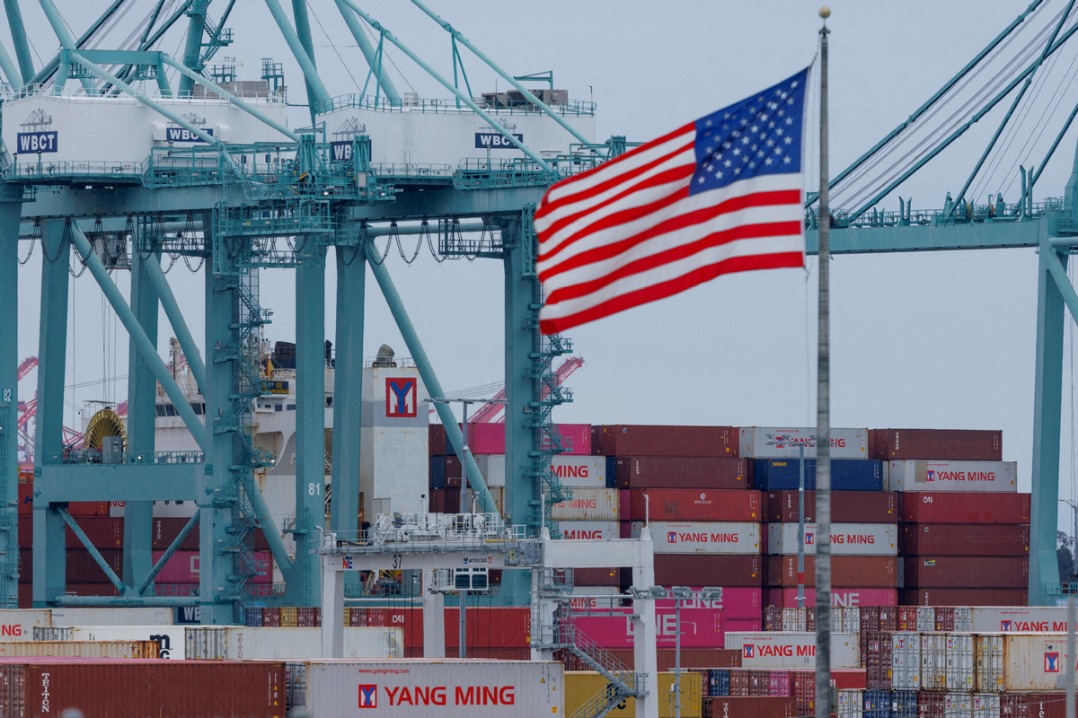US shouldn't restrict China's access to cloud computing and semiconductors


In an era where technology transcends boundaries and propels global progress, it is crucial to foster cooperation and open channels of innovation. Restricting China's access to cloud computing and semiconductors may seem like a viable strategy to safeguard national interests, but a deeper analysis reveals the potential drawbacks and missed opportunities such restrictions bring. Instead of isolating China, the United States should embrace collaboration and seek mutually beneficial partnerships in the realm of technology. By doing so, the US can contribute to ensuring continued advancements, driving economic growth, and creating a more inclusive and prosperous future.
Technological advancements in today's world rely on collaboration and the exchange of ideas across borders. Cloud computing and semiconductors are critical pillars of the digital revolution that empower businesses, governments, and individuals to thrive in the digital age. Restricting China's access to these technologies would hinder the free flow of knowledge and impede global progress. The US should prioritize building bridges instead of erecting barriers, fostering an environment that encourages collaboration between nations.
National security concerns are undoubtedly important, but a comprehensive approach is necessary to address them effectively. Relying solely on restrictions and limitations is a shortsighted strategy that undermines the potential for constructive dialogue and problem-solving. Instead of trying to thwart Chinese technological development, the United States should put efforts into dialogue with China to establish frameworks for cooperation that safeguard both national interests and global security. Collaborative endeavors can enable the establishment of shared standards, enhanced transparency, and improved cybersecurity measures, fostering a more secure technological ecosystem for everyone.
China's technological prowess is undeniable. It has emerged as a global leader in several domains, including cloud computing and semiconductors. Instead of fearing this progress, the United States should recognize the economic opportunities that lie in collaborating with China. American firms can gain a lot by collaborating with Chinese companies, including access to the vast market and consumer base, foster innovation that will benefit China and the United States as well as the whole world. The synergy of Chinese and American companies would allow businesses from both countries to flourish and create jobs, benefiting not only the US and China but the global economy as a whole.
Restricting China's access to cloud computing and semiconductors will only harm American businesses and impede technological advancement, undermining the country's global competitiveness.
Technological collaboration can serve as a catalyst for strengthening diplomatic relations between nations. Engaging with China on shared technological interests fosters an environment of trust and cooperation. By promoting open dialogue and collaboration, the United States can address its economic problems. Engagement allows for the inclusion of important discussions about privacy, data protection, and intellectual property rights, ensuring that shared values are protected and respected.
In an increasingly interconnected world, isolating and restricting China's access to cloud computing and semiconductors would be a counterproductive move. Rather than allowing fear and competition to drive us apart, the United States should embrace collaboration and cooperation. Through engaging with China in the development of these technologies, the US can have its own contribution in shaping the future of innovation, enhancing national security, and fostering economic growth.
Instead of trying to thwart and isolate China by pushing for a new Cold War, the US leaders shall choose the path of collaboration, taking a part in forging a world where technological advancements benefit all, and where the global community thrives together.
Dawid Wiktor is the chief executive officer of Media Scope Group and president of the Estonian-Chinese Chamber of Commerce. The views don't necessarily reflect those of China Daily.
If you have a specific expertise, or would like to share your thought about our stories, then send us your writings at opinion@chinadaily.com.cn, and comment@chinadaily.com.cn.


































